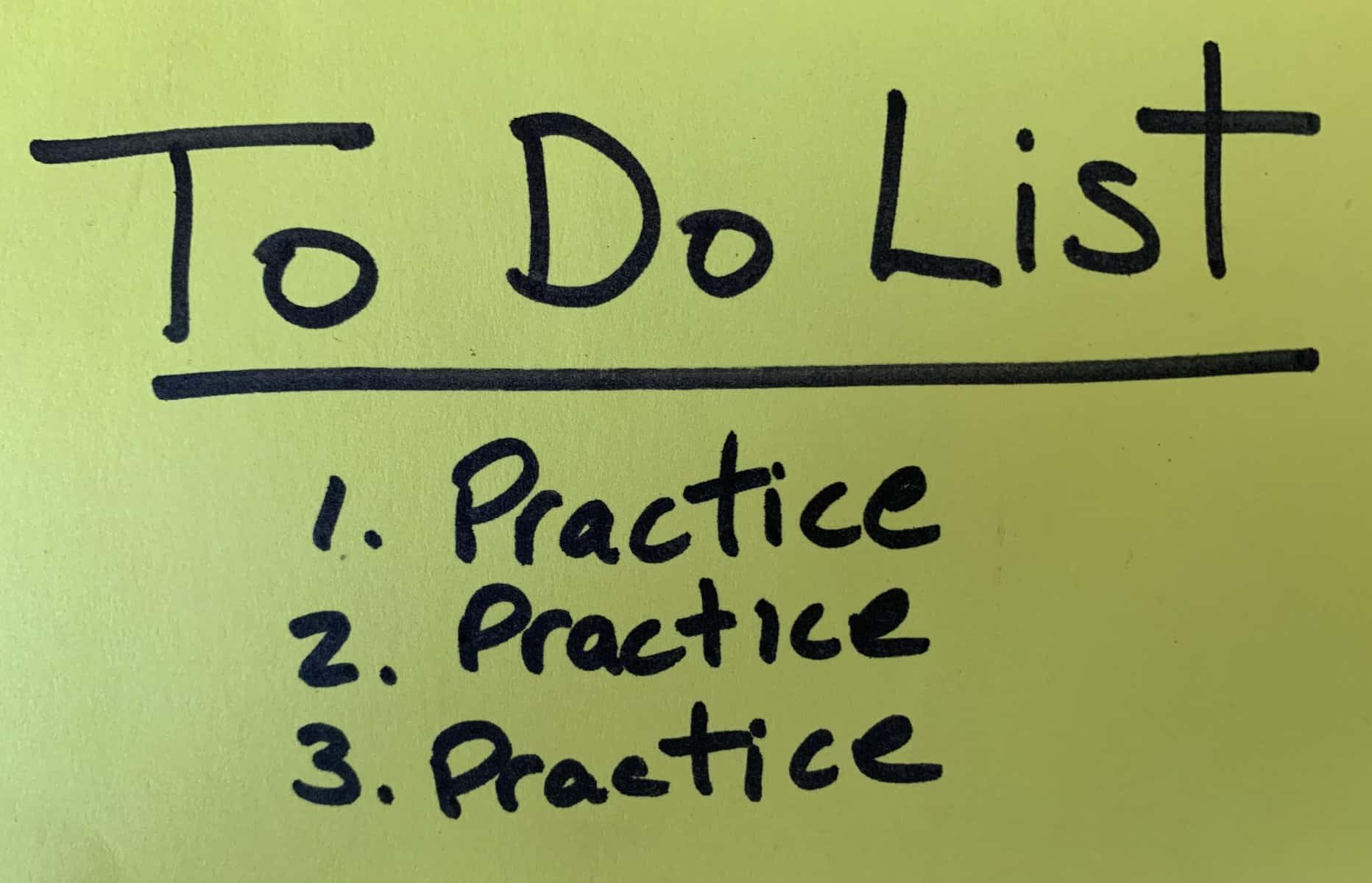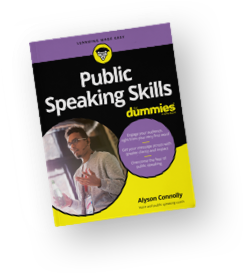My sister was asked to give a toast at her son’s wedding. She doesn’t consider herself a confident public speaker, mainly because she hasn’t had to do it many times in her career. After we tweaked the speech to where we felt it was in her own her voice, she began practicing it out loud. She practiced it so much that she knew the thing backward and forwards.
The wedding was in Hawaii and on the day before the wedding, she asked if she could go into the room where she was to give her speech and she practiced. She even wore the shoes that she was going to wear for the wedding. Not the dress, though. She wanted to save that for the wedding day.
Even though the staff were setting up the room and making noise, she got through it. The room was partially outside, and you could hear the thrashing of the waves, but she continued on. She felt completely confident that the speech would go well.
The next day was beautiful. Bright sunshine, glorious ceremony. Then came dinner and the reception. After that, the speeches. By this time, the sun was down and there was very little light on the stage where my sister was going to present. It was extremely difficult to read the words on the page! Did she collapse and fall on the floor in a wailing mess? Nope, she asked if anyone had some reading glasses, luckily the font was 16, she got up on the stage and went at it. She enjoyed the experience and was glad that she was a part of her son’s special day.
She did a number of things ahead of time that I recommend. She wrote the speech in her own voice, she practiced it out loud, she rehearsed it in what she was going to wear, she went to the room where she would speak and once again, practiced.
This got me thinking about the importance of practice.
To Wing It, or not to Wing It
I’ve heard this many times with new clients: “I don’t like to prepare too much because I like to be spontaneous, and I want people to see the real me.” I understand where they’re coming from but when you don’t prepare you run the risk of repeating yourself or missing key points. Plus, I just bet your anxiety levels shoot through the roof!
In my experience practicing helps to clarify your message, keep you on point, and gives you the confidence to carry on no matter what is going on around you. And with that confidence we can see the real you!
I just finished listening to the ESO Offstage podcast Practice Makes Perfect? It has some great examples of how practice can help you overcome challenges.
How much am I going to practice?
Part of the podcast features Rob Knopper, percussionist at the Metropolitan Opera who helps musicians work on audition preparation. As a professional musician himself, he auditioned for approximately 10 years and went to over 54 auditions. He found a process that worked for him. “The approach is not how much do I need to practice but how much of the day am I not going to practice.”
Nopper does a mock audition every day, for 6 weeks prior to an audition. Soon it feels like a habit and he doesn’t even have to think about what he is doing.
“Ok”, you think, “that’s a tad excessive for someone like me who is giving a presentation to my company.” But, if you want to climb the ladder in your career, and giving presentations well gets you there, wouldn’t that motivate you?
Stressing Out! Don’t suppress it, use it.
Also in the podcast, Dr. Don Greene, who works with musicians for peak performance, realizes that stress will be there, but it is just a matter of how we use it. Of course, we’ll have more adrenaline surging through our body when we present as opposed to sitting in front of the TV. His clients go through a form of martial art called Aikido which manages the energy but doesn’t shut it down.
Don’t suppress it, use it.
Letting Go
Dr. Green asks his clients to accept that they’re not perfect and be kind to themselves. “Treat yourself like a friend, not like your worst enemy.” You will have setbacks. This is an opportunity to learn from what didn’t go according to your plan and how you can improve the next time. Dr. Green advises with each thing you think you did wrong, think of three things that you did right. If you keep brooding about your mistakes, you’ll create more.
Why Does Practice Work?
As Dr, Green describes it, every time you go through your presentation in a way that works for you, you are initiating the neuromuscular program in your body. As you move when you need to, make gestures to describe certain things, pause when you want to make an impact, emphasize important words, that program is initiated.
The neurons connect the brain to the rest of your body. Myelin builds up around the neurons and acts as a covering which allows impulses to transmit quickly along the nerve cells. If you’re under stress on the day of your presentation, the myelin will activate. Have faith that if you’ve done the work, your myelin will have you covered.
My sister has fond memories of her son’s wedding and giving her speech. In Dr. Green’s words, “Practice makes permanent.”
Here is the link to the ESO podcast: https://www.listennotes.com/podcasts/eso-offstage/ep-4-practice-makes-perfect-X3kmV7RfG0M/

